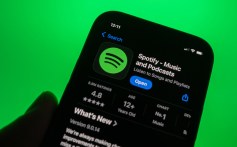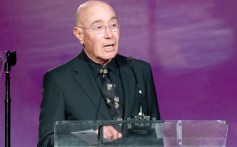Business
Page: 33
In celebration of the late R&B legend D’Angelo, Billboard takes a look at some of his biggest hits and career highlights. The visionary performer, who died in October 2025 at age 51 of cancer, was an innovative singer, songwriter and producer who shaped the 1990’s neo-soul movement alongside contemporaries including Erykah Badu, Lauryn Hill and Maxwell.D’Angelo, born Michael Archer, charted eight titles as an artist on the Billboard Hot 100 chart, three albums on the Billboard 200, and numerous entries on R&B/hip-hop tallies. His highest-charting Hot 100 hit, “Lady,” stands as his lone top 10, having hit No. 10 on March 30, 1996. It was also nominated for a Grammy Award in 1997 for best male R&B vocal performance. The single is from his also Grammy-nominated debut album, Brown Sugar, which reached No. 22 on the Billboard 200, as well as No. 4 on Top R&B/Hip-Hop Albums.
Related
Brown Sugar additionally yielded Hot 100 hits in the title track (No. 27, August 1995), “Cruisin’ ” (No. 53, December 1995), and “Me and Those Dreamin’ Eyes of Mine” (No. 74, December 1996).
After a four-year break, D’Angelo returned with his sophomore album, Voodoo, which debuted at No. 1 on the Feb. 12, 2000-dated Billboard 200, where it reigned for two weeks. The LP ruled Top R&B/Hip-Hop Albums for four weeks. Its biggest single, “Untitled (How Does It Feel),” hit No. 25 on the Hot 100 and dominated the R&B/Hip-Hop Airplay chart for six weeks (his sole leader on the list). Both the album and single won Grammy Awards in 2001, for best R&B album and best male R&B vocal performance, respectively.
Known for his lengthy sabbaticals, D’Angelo’s next LP did not arrive until December 2014. Black Messiah debuted at No. 1 on Top R&B Albums and No. 5 on the Billboard 200. The record also earned him two Grammy wins, for best R&B album and best R&B song, for the single “Really Love,” which peaked at No. 4 on Adult R&B Songs in May 2015.
D’Angelo’s Biggest Billboard Hot 100 Hits
1. “Lady” (No. 10 peak on March 30, 1996)2. “Brown Sugar” (No. 27, Aug. 19, 1995)3. “Untitled (How Does It Feel)” (No. 25, Feb. 19, 2000)4. “Cruisin’ ” (No. 53, Dec. 2, 1995)5. “Me and Those Dreamin’ Eyes of Mine” (No. 74, Oct. 12, 1996)
D’Angelo’s Biggest Billboard Hot 100 hits chart is based on actual performance on the weekly Billboard Hot 100, through the Oct. 25, 2025, ranking. Songs are ranked based on an inverse point system, with weeks at No. 1 earning the greatest value and weeks at No. 100 earning the least. Due to changes in chart methodology over the years, eras are weighted to account for different chart turnover rates over various periods.
Trending on Billboard YouTube paid more than $8 billion to the music business in the 12-month period of July 2024 to June 2025, Lyor Cohen, YouTube’s global head of music, said Wednesday (Oct. 22) during a fireside chat with Billboard editor-in-chief Hannah Karp at Billboard Latin Music Week. Related The amount the music business receives […]
Trending on Billboard
Brace yourself for another jump in your monthly bills: Spotify is expected to raise its subscription prices in the U.S. early next year. According to multiple equity analysts, the streaming company is likely to implement a price hike by the first quarter of 2026, continuing a trend that’s changed what consumers pay to stream music and vastly improved the company’s bottom line.
Related
In a Tuesday (Oct. 21) investor note, Morgan Stanley analysts pointed to Spotify’s price increases in Australia in September as “the beginning of a pricing cycle in ’26” and a move that “creates a template” for pricing in other markets in which Spotify bundles music and audiobooks. The price increase in Australia amounted to 14% for individual plans and 17% for multi-person family plans.
Likewise, analysts at J.P. Morgan expect a U.S. price increase will come “by year end or early 2026,” they wrote in an Oct. 14 note. The analysts estimated that recent price increases — which included Germany, Austria and Lichtenstein — represent just 25% to 30% of subscription revenue and could account for incremental annual revenue of 380 million euros ($441 million). A U.S. price increase would be even more impactful, they added, driving 425 million ($493 million) of annual incremental revenue.
Guggenheim expects a U.S. price increase to be announced by the end of the year, with the financial impact hitting Spotify’s income statement in early 2026, analysts wrote in an Aug. 18 note to investors. The analysts believe that the latest round of licensing agreements with record labels “included pending increases in per-subscriber minimum fees,” which would lead to higher prices paid by subscribers.
Related
In the U.S., a Spotify individual plan was raised to $11.99 per month in July 2024. The price had gone unchanged since launching in the U.S. in 2011 until Spotify bumped the price to $10.99 in July 2023. The family plan increased from $15.99 to $16.99 in 2023 and further rose to $19.99 in 2024.
Spotify executives have not explicitly said they intend to further raise prices in the coming months. Instead, management frequently talks about the company’s efforts to make Spotify a more valuable experience, which gives it the ability to raise prices without losing subscriptions. This “value-to-price” ratio has become a key metric that helps guide Spotify. As co-president Alex Norström explained during a May 1 earnings call, the company “takes steps to balance the value-to-price ratio,” adding value and then adjusting the price “when it makes sense for the market.”
Raising prices has been instrumental in helping Spotify become a more profitable company. Looking ahead, Morgan Stanley analysts believe Spotify is likely to achieve 14% to 15% compound annual revenue growth through 2028. Analysts Benjamin Swinburne and Cameron Mansson-Perrone “see significant margin potential still ahead as the company follows product enhancements with price increases and diversifies into higher margin products” in its subscription segment. Put another way, the analysts see room for Spotify’s financials to improve as it raises prices and adds additional products such as a “superfan” tier on top of the standard subscription price.
Guggenheim has a $850 price target, suggesting 19% upside from Tuesday’s $689.21 closing price. Morgan Stanley has an $800 price target while J.P. Morgan is slightly more bullish, forecasting a price target of $805.
Trending on Billboard
Lizzo is facing a copyright lawsuit over her “I’m Going Til October,” a track she teased on social media to poke fun at Sydney Sweeney’s American Eagle ad controversy but never actually commercially released.
The case, filed Tuesday by a group called GRC Trust, claims that Lizzo’s provocative song (also known as “Good Jeans” in reference to the Sweeney debacle) stole material from an earlier track called “Win or Lose (We Tried),” which appears to have been recorded by the soul singer Sam Dees.
Related
Obtained by Billboard, the lawsuit is light on details – claiming Lizzo’s track “incorporates, interpolates, and samples instrumental and vocal elements” without more specifics. But it pointedly says that reps for the star have “acknowledged” that the materials were used.
The case is notable because Lizzo never formally released the song in question. Though she teased a snippet on TikTok, the star has not included it on any formal release, including her June mixtape My Face Hurts From Smiling. Her long-awaited next studio album, Love in Real Life, was scheduled to drop at some point in 2025 but she said last month she’s unsure if or when it will be released.
Posting a song featuring an uncleared sample on social media would still count as copyright infringement; but the stakes would be lower, because it would be harder to prove that Lizzo made substantial profits without actually selling the allegedly infringing song. Such pre-release disputes are more typically handled with private negotiations rather than full-blown lawsuits.
In a statement to Billboard, Lizzo’s reps said: “We are surprised that The GRC Trust filed this lawsuit. To be clear, the song has never been commercially released or monetized, and no decision has been made at this time regarding any future commercial release of the song.”
Related
The American Eagle ads, launched in July under the tagline “Sydney Sweeney Has Great Jeans,” sparked criticism that they were an allusion to eugenics and white supremacist ideals. That then prompted a right-wing backlash defending them and mocking the critiques.
In her August video on TikTok, Lizzo can be seen washing a Porsche while wearing a denim top. The clip features a snippet from “Going Til October,” in which the star raps: “No kizzy, he ain’t got no business being with me. Fat ass pretty face with the titties. Bitch, I got good jeans like I’m Sydney.”
While Tuesday’s lawsuit claims that snippet used material from “Win or Lose,” it doesn’t explicitly specify who wrote or recorded that track. But it appears to be the 1995 song recorded by Dees, which repeatedly features the lyric “win or lose we tried.” In an earlier sampling suit against Ye (formerly Kanye West), GRC Trust brought similar infringement allegations over another track by Dees.
The copyright case is the latest legal headache for Lizzo. In 2023, she was hit with a bombshell lawsuit from three former dancers (Arianna Davis, Crystal Williams and Noelle Rodriguez) who claimed they had experienced sexual harassment and a hostile work environment while working for the superstar. The case, which also included allegations of weight-shaming, racial and religious discrimination, remains pending amid a lengthy appeal.
Trending on Billboard
Tex-Mex combo Grupo Frontera has entered into a worldwide distribution agreement with The Orchard, the Sony-owned music distribution company, covering both new releases and their existing catalog. Through this partnership, the band will gain access to The Orchard’s full suite of services and expansive global network, marking a significant step in their international growth.
The announcement aligns with the launch of Grupo Frontera’s new label, BorderTown Records, which will debut with the band’s third studio album, Lo Que Me Falta Por Llorar, arriving this Thursday (Oct. 23) at 8 p.m. EST. The album signals a bold new chapter for Grupo Frontera, transforming what they call “melancholy into rhythm and vulnerability into strength” through 13 tracks that reflect on love, loss and resilience.
Related
The album features collaborations with major artists including Ozuna, Myke Towers, Tito Double P, Fuerza Regida, Cris MJ and Los Dareyes de la Sierra. Fans have already heard the first preview, “No Lo Ves” with Ozuna, and the album also includes their recent hit “Lalala.”
The band has been steadfast in releasing its music independently; indie label VHR Music put out its debut album in 2023, and the band self-released last year’s Jugando.
“This new partnership with The Orchard marks an exciting new era for Grupo Frontera,” the band said in a statement. “It comes at the perfect time with the release of our new album. This collaboration represents growth, independence, and a global vision. We’ve always believed our music could travel beyond borders, and now we have the tools to create authentically, reach new audiences, and stay true to our roots. Our story began at the border, and now it continues around the world.”
Claudia Ochoa, vp of The Orchard Mexico, praised the group’s impact: “Grupo Frontera’s innovative sound, blending traditional norteño with global rhythms, has redefined Mexican music. Their work transcends cultural and generational divides, resonating with listeners through life’s diverse moments. We couldn’t be more excited to welcome Grupo Frontera into The Orchard family and help spread their music to new audiences around the world.”
L-R: Erol Cichowski (The Orchard), Juan Javier Cantu, Claudia Ochoa (The Orchard), Carlos Guerrero, Adelaido Solís III, Julián Peña Jr., Jason Pascal (The Orchard), and Alberto Acosta.
Emma Callahan
Formed in 2022 in Edinburg, Texas, Grupo Frontera quickly rose to fame with their TikTok-viral cover of Morat’s “No Se Va” and collaborations with stars like Bad Bunny — their track “Un x100to” became a Hot 100 top-five hit — and Fuerza Regida. Known for blending norteño, cumbia and modern Latin sounds, the band has earned several Latin Grammy Awards and are set to perform at the 2025 Billboard Latin Music Awards, set to take place at Miami’s James L. Knight Center on Thursday, Oct. 23. This year’s Billboard Latin Music Awards, airing on Telemundo, will also include performances by Puerto Rican vocalist Ángel Lopez, Venezuelan hitmaker Danny Ocean, reggaetón powerhouse Ozuna, tropical music legend Olga Tañón, and Italian icon Laura Pausini, among others.
Trending on Billboard EJAE, the powerhouse vocalist and songwriter behind KPop Demon Hunters’ chart-topping single “Golden,” has signed with WME for worldwide representation across all areas of her music career. A breakout voice from Netflix’s record-smashing animated musical film, EJAE is the singing voice of Rumi, the lead vocalist of the fictional girl group HUNTR/X. […]
Trending on Billboard
Broke Records is facing a lawsuit from ATLXS, the 18-year-old Italian artist behind the hit dance track “Passo Bem Solto,” who alleges the indie label is refusing to release him from a distribution deal he signed as a minor.
Broke, co-founded by Andre Benz and Brandon De Oliveira in 2023 in partnership with Create Music Group, has carved out a niche identifying viral songs and turning them into streaming hits. This is precisely what the label did with “Passo Bem Solto,” which is currently No. 6 on Billboard‘s Hot Dance/Electronic Songs chart and has more than 450 million Spotify streams across various remixes.
Related
But the artist behind “Passo Bem Solto,” 18-year-old ATLXS (Diego Basile), is now suing Broke to get out of his contract. ATLXS’ attorney, Douglas Johnson, writes in a Monday (Oct. 20) federal complaint that he signed over the “Passo Bem Solto” masters to Broke in January, and Johnson tells Billboard that the agreement also included publishing rights.
The lawsuit alleges the deal was “predatory,” and that a provision of California’s family code allows a contract signed by a minor to be later “disaffirmed” — that is, made void. ATLXS, who was only 17 when he signed with Broke, sent a legal notice to the label terminating his contract under this provision last month.
According to the lawsuit, Broke refused to honor the termination notice and is continuing to monetize “Passo Bem Solto” on streaming platforms. ATLXS is seeking a court order requiring his masters and publishing rights to be reverted back, as well financial damages for copyright infringement.
Related
“Defendant has retained revenues, royalties and profits derived from the exploitation of the subject works after disaffirmance,” reads the complaint. “Defendant has continued to exploit the works through all of its streaming distribution channels, including continuing to stream the subject works on several streaming services, including but not limited to YouTube and Spotify.”
Speaking with Billboard on Tuesday (Oct. 21), Johnson says California law is clear that minors can rebuke their contracts and that an artist like ATLXS can regain his copyrights. “I find it to be a straightforward case,” he says.
Reps for Broke declined to comment on the lawsuit Tuesday.

Trending on Billboard The sheer number of artist signings announced on a weekly basis makes it difficult to keep up, no matter how closely you pay attention to the industry news cycle. That’s why every other Tuesday, Billboard compiles the latest signings to labels, distributors, agencies, management companies and more, in an effort to provide […]
Trending on Billboard
Seemingly small initiatives can make a big impact when it comes to making festivals greener — a point Oregon’s Cascade Equinox Festival is demonstrating with its ongoing sustainability program.
The festival’s third edition happened Sep. 19-21 in Redmond, Oregon, with organizers once again implementing a program they say has helped plant hundreds of trees and protect thousands of acres of rainforest in the event’s first three years.
Related
The program is designed around the “Eco-Band initiative,” which allows attendees to upgrade their passes to include a 100% hemp wristband for $20. A representative for the event reports that this year’s program raised enough money to plant 394 trees in Oregon forests and to protect roughly 511 acres of land in Ecuador. Another roughly $700 raised through donations on the festival’s website went to the protection of another 177 acres of the same Ecuadorian land, which is home to jaguars and Andean bears.
Since Cascade Equinox’s 2023 debut, the hemp wristband program has raised funds to plant 601 trees in the local Willamette National Forest and to protect 1,665 acres of Amazon rainforest. The latter initiative has been done in partnership with SAVIMBO, an organization founded by Indigenous leaders in the Colombian Amazon that pays Indigenous peoples and subsistence farmers in tropical forests to preserve these ecosystems. The festival’s project has specifically worked with the Cofán Indigenous Community in Chandia Na’en, Ecuador.
The hemp wristband program was executed in partnership with Green Disco, an organization composed of promoters, producers and environmental experts who consult on live events, along with Earthwin.org, which works to expand education on mindful living for global well-being.
“Sustainability is a core principle for Cascade Equinox, and in leading by example we hope that other festivals notice and make similar efforts and improvements,” festival organizer Josh Pollack tells Billboard. “We’re thrilled to have planted over 600 native trees locally in Oregon and preserved over 1,600 acres of Amazon rainforest in Ecuador over three years. Big thanks to Earthwin and Green Disco for being incredible partners and sharing our vision for music festivals making a positive ecological impact both locally and globally.”
The 2025 edition of Cascade Equinox Festival featured artists including Sylvan Esso, Disclosure, Big Gigantic, TroyBoi and Chromeo. The next event is slated for Sept. 18-20, 2026.
Billboard‘s Live Music Summit will be held in Los Angeles on Nov. 3. For tickets and more information, visit https://www.billboardlivemusicsummit.com/2025/home-launch.
Trending on Billboard
David Geffen’s estranged husband has dropped a scandalous lawsuit that leveled shocking abuse allegations against the music and film mogul while seeking lifelong financial support.
Geffen will continue to fight it out in divorce court over temporary spousal support and potential asset division with Donovan Michaels, a former exotic dancer who married the 82-year-old billionaire without a prenup in 2023. But Michaels’ lawyers filed a court notice on Friday (Oct. 17) dropping a civil lawsuit that had sought far more: “financial support commensurate with his lifestyle for the rest of his life.”
Related
Michaels’ civil case, brought in July after Geffen initiated divorce proceedings, aired years of dirty laundry and leveled shocking allegations against the Asylum Records and Geffen Records founder.
The 32-year-old (born David Armstrong) claimed that Geffen began paying him for sex after they met through the website SeekingArrangements.com in 2016. Michaels said Geffen treated him as a “sexual commodity” and plied him with drugs and alcohol as “tools of coercion” during their relationship and eventual marriage.
At the heart of the lawsuit was Michaels’ claim that Geffen promised to provide him with “lifetime support.” Michaels said he relied on this assurance when he gave up a modeling career to be a full-time husband to Geffen.
Geffen, meanwhile, fervently denied Michaels’ claims as “petty gossip and salacious lies.” The billionaire said Michaels was merely trying to extort a lucrative settlement out of him, and that he never promised any sort of lifelong financial support.
Related
Now that the civil lawsuit has been dropped, lawyers for the estranged couple will focus their attention on a more traditional marriage dissolution proceeding filed by Geffen in May. Geffen is asking in that case for a judge to declare that his only financial obligation to Michaels is $50,000 per month in spousal support for just one year.
Geffen says the judge should note that he’s already given Michaels $5 million worth of art and jewelry, and notes that the couple lived “separate lives” during the mere 23 months they were married. Geffen claims that because he was retired and making no income during the marriage, there aren’t any marital assets to share with Michaels.
“While respondent will have far less wealth than petitioner due to petitioner’s vast separate property estate when the parties’ married, respondent will certainly walk away from this brief marriage with more wealth than most Americans,” wrote Geffen’s attorney Parima Pandkhou in a Sept. 18 divorce filing.
Michaels, however, says it remains an open question whether Geffen made money through investments during their marriage that should be considered joint assets. Michaels has slammed Geffen for trying to “conceal the truth about his enormous wealth” and says the divorce cannot be finalized until he gets a chance to look at Geffen’s books.
Related
“This is quite literally a case of David and Goliath,” wrote Michael’s lawyer Samantha Spector on Oct. 2. “While David has repeatedly yet falsely attempted to portray himself as an aging ‘retiree,’ the reality is that he remains an enormously important power player in uber wealthy circles who, through a myriad of capitalist ventures, is one of the highest income earners on the planet.”
Michaels’ and Geffen’s lawyers are set to appear in Los Angeles family court for a hearing on Nov. 14. Neither side returned a request for comment from Billboard on Tuesday (Oct. 21).

 State Champ Radio
State Champ Radio 









